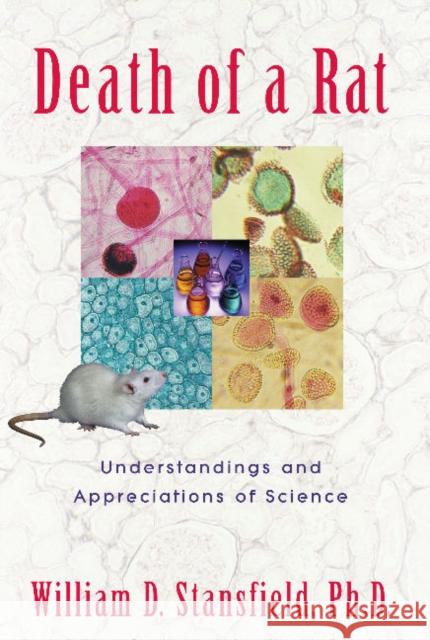Death of a Rat: Understandings and Appre » książka
Death of a Rat: Understandings and Appre
ISBN-13: 9781573928144 / Angielski / Twarda / 2000 / 362 str.
With this intriguing opening geneticist and science writer William D. Stansfield begins this popular overview of the major ethical and philosophical issues confronting science today. From concern about the welfare of experimental animals to a consideration of the many other kinds of impediments that slow the progress of science-religious, moral, political, and conceptual-each accessible chapter conveys to the intelligent lay reader an appreciation for the work that scientists do and the obstacles that stand in their way. With a knack for telling a good story, Stansfield weaves together the history of science and contemporary events in diversely entertaining, loosely connected chapters that can be read sequentially or stand on their own.
"The Frankenstein Model" considers such thorny issues as human experimentation, fetal cell research, and animal rights. "Dance Fever" shows how a "paradigm hold" (e.g., bee dance language) can redirect scientists away from giving alternate theories a proper test. "Grand Illusions" looks at enticing scientific ideas like cold fusion that sometimes lead scientists down the wrong path. "Strange Bedfellows" traces the influence of religion and politics on the advance of science and on science education today. Other chapters discuss the role that serendipity plays in scientific discoveries, where great ideas come from, J.D. Watson's double helix model of DNA, the history of the polymerase chain reaction, the discovery of the AIDS virus, and the crucial issue of honesty vs. fraud in scientific research.
At times dramatic, amusing, and always interesting, The Death of a Rat proves that science is much more than the dry, antiseptic exercise of popular stereotypes. William Stansfield compellingly describes the fascinating, very human struggle for truth that makes science the most important enterprise of our time.











